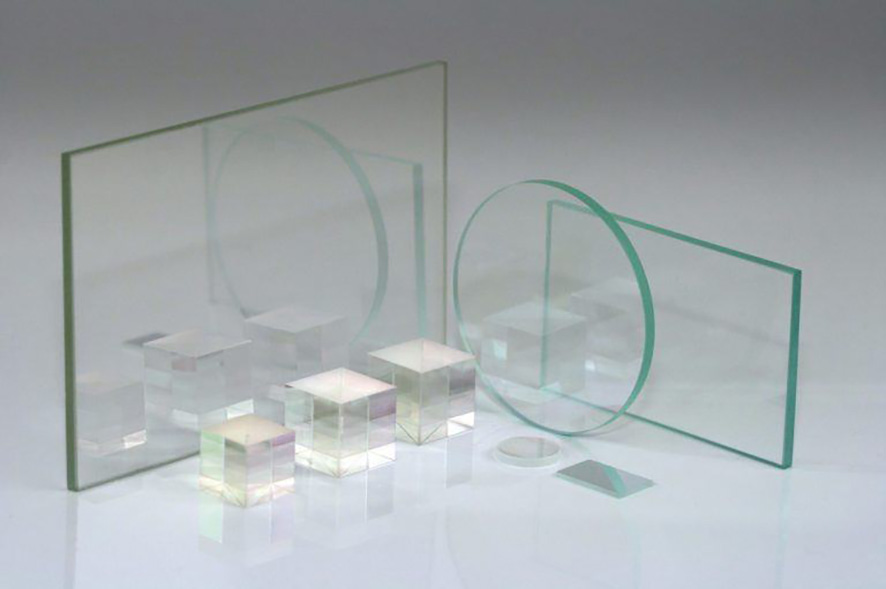Beam analysis in photonics refers to the process of characterising and understanding the properties of a light beam, typically in terms of its spatial and spectral characteristics. This analysis can be crucial in various applications, including optics, laser technology, and optical communications, as it helps scientists and engineers design and optimise optical systems and devices for specific applications.
Beam analysis relies on a variety of tools and components designed to scrutinise light beams. These instruments are instrumental in deciphering the spatial and spectral characteristics of optical beams. Notable among them are beam profilers, which employ sensors and cameras to scrutinise a beam's spatial intensity distribution, revealing essential data regarding its size, shape, and intensity profile. Spectral analysers, such as spectrometers and optical spectrum analysers, play a key role in unveiling the spectral attributes of a light beam, including its wavelength, frequency content, bandwidth, and spectral power distribution.
Beam splitters are employed to partition a single beam of light into multiple paths, facilitating precise beam measurements in applications like interferometry. Additionally, wavefront sensors are indispensable for gauging wavefront phase and amplitude, offering valuable insights into wavefront aberrations and beam quality. Polarisation analysers come into play to characterise a beam's polarisation state, offering information on its polarisation direction and degree. Collimators ensure that light beams remain parallel and collimated, particularly significant in laser systems, while beam expanders are used to enlarge beam size for purposes like reducing divergence or matching beam sizes between different optical components.
Beam profiling scanners provide automation for beam scanning and profiling in two dimensions, offering a holistic view of the beam profile. Attenuators are applied to safely reduce beam intensity, making it suitable for measurement without causing harm to sensitive detectors. Furthermore, diffractive optics and spatial light modulators (SLMs) enable the manipulation of beam spatial properties, enabling the creation of customised beam profiles and patterns. Laser power meters quantify the total power or energy within a light beam, providing crucial intensity data, and beam samplers and beam dumps serve to either sample a small portion of a beam for analysis or safely dissipate excess optical power. Precision alignment and positioning systems are essential to accurately direct and manipulate the beam during analysis. Specialised software is also used for processing and analysing data obtained from beam profiling and related measurements, ensuring comprehensive insights into the beam's behaviour and characteristics.
Optical products for beam analysis on the market now
Cinogy’s range of beam profilers are available with the specifically designed beam profiling software RayCi, which uses the latest generation of correction algorithms and visualisations modes. This is designed to help ensure high accuracy in beam profile analysis according to ISO standards.
Coherent offers laser sources, beam delivery systems, and laser beam analysers to characterise the spatial intensity distribution and size of laser beams, and visualise beam shape, with speed and accuracy. The company’s LaserCam HR II camera systems are designed to deliver fast and detailed beam intensity profile analysis, while the BeamMaster-USB scanning multiple knife-edge system can offer a large dynamic operating range and accurately measure small diameter and focused laser beams.
CNI provides a range of lasers, laser modules, and laser measurement instruments for beam analysis, such as its laser profile analyser, which is used to test laser transverse mode energy distribution.
DataRay has more than 30 years of experience in laser beam profiling and analysis. The company provides instrumentation to the photonics industry, with product lines including beam profiling cameras (190nm to 16 microns, model-dependent), and scanning slit beam profilers (190nm to 4 microns, model dependent).
Edmund Optics offers a variety of optical components, including lenses, mirrors, beam splitters, and polarisation analysers. Products include the DataRay CMOS and Scanning Slit beam profilers, as well as the Edmund Optics beam profilers in high resolution for accurate small beam profile measurements. The company also provides the Ultrafast Autocorrelator by APE and the Coherent LaserCam beam profiler.
Gentec-EO specialises in laser power and energy measurement instruments, including power meters and energy detectors. The company’s most recent launch is the Miro Altitude meter for reading laser power and energy measurements.
IPG Photonics provides a comprehensive supply of fibre lasers and fibre laser solutions. The company manufactures a complete set of optical beam delivery components including delivery fibre and optics, beam couplers, switches and sharers, processing heads, collimators, as well as process control and tooling solutions.
Keysight offers a range of test and measurement equipment, including optical spectrum analysers and laser diode analysers for numerous applications.
Knight Optical supplies a variety of optical components for instrumentation in fields including research and development, engineering and science. The company’s plate beamsplitters, for example, have the splitter coating on one surface of a suitable window material and is coated on N-BK7 or equivalent substrates. The standard range is coated on white float glass and the entry-level range is coated on a soda-lime float glass substrate.
Ophir Optronics provides a range of solutions for beam characterisation. These have been designed to suit any wavelength, at any power and for any beam diameter. The company’s range includes laser beam profilers, focus spot analysers, M2 beam propagation analysers and beam profiler accessories.
Physik Instrumente (PI) manufactures precision motion control systems and nanopositioning stages for beam alignment. The company’s portfolio ranges from components to subsystems, to tailor-made complete solutions.
Thorlabs offers a range of products that can be used for laser beam characterisation. Properties such as intensity, degree of collimation, power, wavefront shape, and spectral properties can be measured. Also available is the company’s intensity noise analyser, which analyses an input voltage signal to characterise noise in an optical system by determining the power spectral density or relative noise intensity.
Zygo is known for providing interferometers and optical metrology solutions for wavefront analysis. The company also offers a number of optical components including beam splitters and position sensors.
This is not an exhaustive list. If you provide products and solutions for beam analysis and would like your company included, please let us know at: editor.electro@europascience.com.
Knight Optical: Featured beam analysis product
Optical Components for Beam Analysis by Knight Optical: Beam analysis involves assessing a beam's properties, characteristics and behaviour, examining traits like intensity distribution, polarisation, wavelength and dispersion of light as it travels through different mediums and interacts with objects.
Of course, optics play a crucial role in this type of examination, and several components are typically used to analyse a beam. As a leading global provider of optical products, Knight Optical delivers a variety of custom-made and readily available optical components for beam analysis.
These include:
- Lenses
- Mirrors
- Prisms
- Beamsplitters
- Diffraction Gratings
- Polarisers
- Filters
- And more.
To guarantee precise beam analysis, Knight Optical ensures all its optical components are fit for purpose and of the utmost quality. These components undergo Metrology testing in its state-of-the-art, in-house laboratory. They are then subjected to meticulous visual inspection by the optical specialist's QA department, known for their keen attention to detail.
Discover more about Knight Optical's optics here. Alternatively, contact the UK and US teams for more information.



